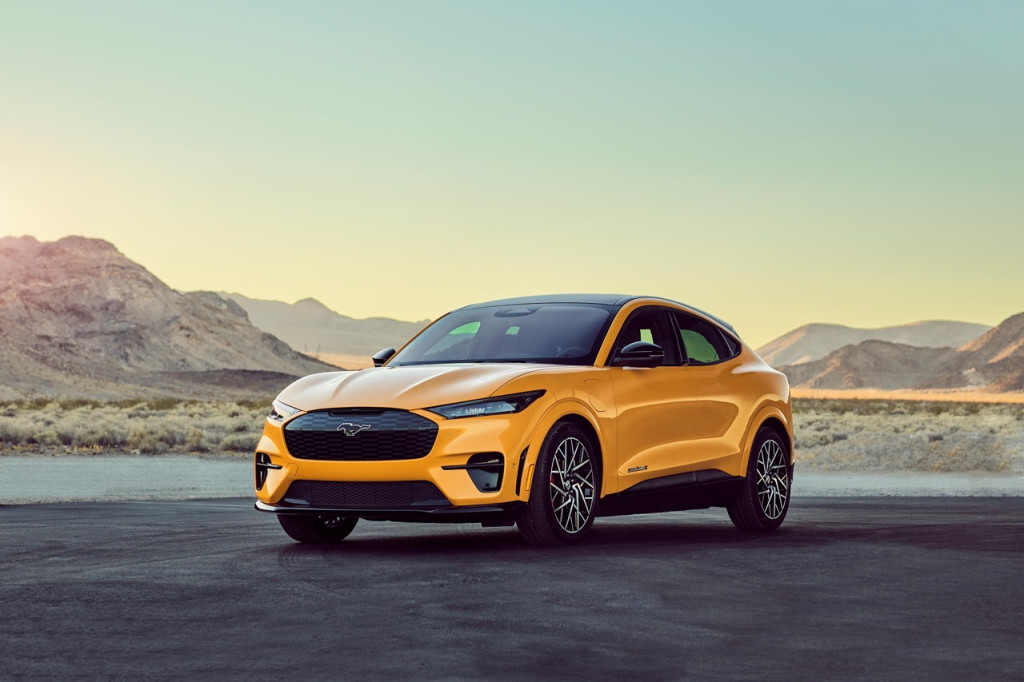While Tesla continues to post industry-leading loyalty numbers, there are now some indications that households are less loyal to EVs from other brands, according to a new study from S&P Global Mobility.
“Nearly half of those non-Tesla EV households that have acquired a new electric vehicle still purchase an internal combustion vehicle the next time around,” according to the study. However, that could be as much a reflection of the non-Tesla EV brands as it is on EVs themselves.
Excluding Tesla, 52.1% of EV households stayed loyal to EVs this year through July, the study found. That means they stuck with EVs, but may have switched brands (possibly to Tesla).
2024 Nissan Leaf
For example, Nissan and Chevrolet EV owners were most likely to stay with EVs, at 63.2% and 60.6%, respectively. However, the most popular follow-up purchase for a Nissan Leaf household was a Tesla Model Y at 14.3%, followed by another Leaf at 12.4%.
Analysts theorized that “doubling down” on EVs could help automakers keep customers loyal to both EVs and specific brands. EV choices are fairly limited at Nissan and Chevy currently, with the latter winding down Bolt EV production without ramping up production of other models. Both brands have more EVs on the way, including a $30,000 Chevy Equinox EV and a new Bolt EV.
“BMW had the highest EV loyalty rate three years ago, but also has not changed that percentage since,” according to the study. In that timeframe BMW discontinued the i3 and shifted mostly to a lineup of EVs that mirror internal-combustion models, so that might have had something to do with it.

2023 Ford Mustang Mach-E
Just 37.3% of Ford Mustang Mach-E owners bought another EV, while 45.8% went back to internal combustion. Many of those buyers went to Ford pickup truck or SUV models, some with hybrid powertrains, which analysts read as an indication that vehicle type was more important than the powertrain.
Building out EV lineups to match the breadth of internal-combustion offerings could help reverse this trend, then, but a 2021 study also hinted that charging was a big factor in EV owners going back to gasoline.
In the other direction, Tesla has shown that Toyota and Honda owners aren’t as loyal to their brands as previously shown. Another S&P Global Mobility study, published in late 2022, found that Tesla was attracting customers from those brands. And another study indicated that Lucid and Rivian, two brands with nothing to lose—quite yet—have been luring Tesla owners.
